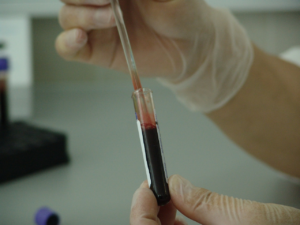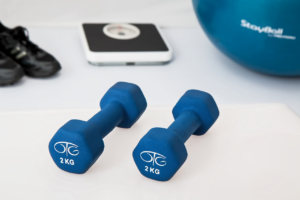Are you preparing to take the nursing school entrance exam? It can be a daunting task, but don’t worry with the right preparation, you can ace it.
In this article, we’ll provide you with a comprehensive review of nursing school entrance exam questions and answers to help you feel confident and ready for test day. First, we’ll give you an overview of the exam, including the types of questions you can expect and the content areas that will be covered.
Then, we’ll provide you with strategies for answering exam questions effectively. Finally, we’ll give you some practice exam questions and answers to help you test your knowledge and prepare for the real thing.
With our help, you’ll be well on your way to passing the nursing school entrance exam and pursuing your dream of becoming a nurse.
Key Takeaways
- The nursing school entrance exam evaluates knowledge in math, science, reading comprehension, and critical thinking, and passing score is required for most nursing schools.
- Thorough preparation and a confident mindset, as well as time management and test-taking strategies, are crucial for success on the exam.
- The exam covers four main areas: math, reading comprehension, science, and English grammar, and includes various types of questions such as reading comprehension, critical thinking, and basic math and science.
- To prepare for the exam, one should review materials related to math, reading comprehension, and science, create a study schedule, manage test anxiety through relaxation techniques, and get enough sleep and eat a healthy meal before the exam.
Overview of the Nursing School Entrance Exam
Get ready to dive into the nitty-gritty of the nursing school entrance exam, as we give you an overview of what to expect and how to prepare!
The nursing school entrance exam is a standardized test given to prospective nursing students. It’s designed to evaluate your knowledge in various subjects, such as math, science, reading comprehension, and critical thinking skills. The exam is typically multiple-choice and timed, with a certain number of questions per section.
The importance of the entrance exam can’t be overstated. Most nursing schools require a passing score on the exam as part of the application process. It’s a way for schools to assess your potential for success in the program and as a future nurse. A high score can also increase your chances of admission and eligibility for scholarships or other financial aid.
Therefore, it’s essential to prepare thoroughly and approach the exam with a focused and confident mindset.
Types of Questions on the Exam
You’ll encounter various types of questions on the nursing school entrance exam. These include those that test your reading comprehension, critical thinking, basic math and science, and knowledge of anatomy and physiology. The questions are designed to assess your ability to understand and apply concepts relevant to the nursing profession.
By familiarizing yourself with the different types of questions, you can better prepare for the exam and increase your chances of success.
Reading Comprehension
Mastering reading comprehension on the nursing school entrance exam is crucial for success, so it’s important to understand the strategies and skills needed to excel. This section of the exam will test your ability to understand and analyze written passages, allowing you to demonstrate your critical thinking skills. To improve your performance on this section, there are several strategies you can use, while also avoiding common mistakes that may negatively affect your score.
One strategy for improving your reading comprehension is to actively engage with the text as you read. This means taking notes, underlining important points, and summarizing the main ideas in your own words. Additionally, it’s important to read the questions carefully before reading the passage, so you know what information to look for. Avoid common mistakes like rushing through the passage, not paying attention to details, or jumping to conclusions. By employing these strategies and avoiding common mistakes, you can improve your performance on the reading comprehension section and increase your chances of success on the nursing school entrance exam.
| Strategy | Description | Example | |
|---|---|---|---|
| Active Reading | Engage with the text by taking notes, underlining important points, and summarizing the main ideas. | Underline key terms and phrases, write summaries in the margin. | |
| Pre-Reading | Read the questions before reading the passage to know what information to look for. | Identify the question type, note the key words. | |
| Skimming | Quickly read the passage to get a general idea of its content. | Read the first and last sentence of each paragraph. | |
| Scanning | Look for specific information by scanning for key words or phrases. | Use CTRL+F to search for keywords. | |
| Summarizing | Restate the main ideas of the passage in your own words. | Write a brief summary of each paragraph. | 1. The first sentence introduces the topic of the passage, which is the different types of reading strategies that can be used to comprehend text. The last sentence of the paragraph provides a general overview of what the rest of the passage will cover. |
Critical Thinking
Improving critical thinking skills is essential for success on any test, including the nursing school entrance exam. One way to enhance these skills is to practice problem-solving techniques. This involves identifying the problem, gathering information, evaluating options, and making a decision.
By practicing problem-solving techniques, you can improve your ability to think critically and make informed decisions.
Another important aspect of critical thinking is decision-making skills. This involves analyzing information, weighing pros and cons, and making a thoughtful decision.
To improve your decision-making skills, you can start by gathering information from multiple sources, considering different perspectives, and evaluating the potential outcomes of each option.
With practice, you can develop these skills and become a more effective problem solver and decision maker, which will ultimately help you succeed in nursing school and beyond.
Basic Math and Science
Learning basic math and science concepts is crucial for success on the nursing entrance exam, as it allows you to understand and apply fundamental principles in healthcare. Here are three important things to keep in mind when studying for this section of the exam:
-
Mathematical equations: You’ll need to be familiar with basic algebra, geometry, and arithmetic. Practice solving equations and word problems using formulas such as A = lw (area equals length times width) and V = bh (volume equals base times height). Additionally, pay attention to units of measurement and conversions, as they’re essential in healthcare settings.
-
Scientific concepts: You’ll be tested on your understanding of biology, chemistry, and physics. Review concepts such as cell structure, organic chemistry, and thermodynamics. Additionally, be prepared to interpret graphs and charts related to scientific data.
-
Practice, practice, practice: The more you practice, the more comfortable you’ll become with the material. Utilize study materials such as textbooks, practice tests, and online resources to reinforce your understanding of these concepts. Don’t be afraid to ask for help if you need it, as your success on the nursing entrance exam can have a significant impact on your future career in healthcare.
Anatomy and Physiology
You need to understand anatomy and physiology to excel on the nursing entrance exam, so make sure to review the structure and function of the human body systems.
Anatomy review involves studying the different body parts and their functions. You need to familiarize yourself with the various organs, tissues, cells, and systems that make up the human body. This includes understanding the skeletal, muscular, nervous, cardiovascular, respiratory, digestive, urinary, and reproductive systems. You also need to know the different body planes and directional terms used in describing the body’s position and movements.
Physiology concepts, on the other hand, deal with the functions of the different body systems. You should be able to explain how each system works and how they interact with each other. This includes understanding the various physiological processes such as homeostasis, metabolism, and cellular respiration. You also need to be familiar with the different types of tissues and their functions, as well as the different types of cells and their roles in the body.
By mastering anatomy and physiology, you’ll have a solid foundation that’ll help you succeed in nursing school and in your future career as a nurse.
Content Areas Covered on the Exam
Hey there, wanna know what subjects you’ll be tested on in the nursing school entrance exam? Well, let me tell you, the content areas covered are crucial for success, so listen up!
The exam will cover four main areas: math, reading comprehension, science, and English grammar. You will need to demonstrate your knowledge in these areas to prove that you have what it takes to succeed in nursing school.
To prepare for these areas, you should review materials related to math, such as fractions, decimals, percentages, and basic algebra.
For reading comprehension, you should practice reading passages and answering questions about them.
In the science section, you will be tested on anatomy and physiology, biology, chemistry, and physics. To prepare for this section, you should review textbooks and study techniques that will help you remember important concepts.
Finally, the English grammar section will test your knowledge of grammar rules, sentence structure, and punctuation. Make sure to brush up on these skills before taking the exam.
Strategies for Answering Exam Questions
Now, let’s talk about some tips and tricks for acing those exam questions like a pro!
One important strategy to keep in mind is to eliminate options. If you’re unsure about the correct answer, start by eliminating the options that are obviously wrong. This will increase your chances of selecting the correct answer.
Additionally, be sure to read each question carefully and thoroughly before answering. Don’t rush through the questions, take your time to understand what’s being asked of you.
Another crucial strategy for success is time management. It’s important to pace yourself and prioritize which questions to answer first. If you encounter a difficult question, don’t spend too much time on it. Move on to the next question and come back to it later if you have time.
Remember, there is a time limit for the exam, so be sure to use your time wisely. By implementing these strategies, you’ll be well on your way to acing the nursing school entrance exam!
Practice Exam Questions and Answers
As you go through the practice exams, imagine yourself sitting in a quiet room with a pencil in hand, carefully reading each question and confidently selecting the correct answer. Test-taking strategies are crucial to your success on the nursing school entrance exam.
One of the most important strategies to keep in mind is time management. Here are three tips to help you manage your time more effectively during the exam:
-
Read the instructions and questions carefully. Don’t rush through the exam. Take your time to fully understand what each question is asking and what the instructions are telling you to do.
-
Don’t spend too much time on any one question. If you get stuck on a question, move on to the next one and come back to it later. You don’t want to waste valuable time on one question and end up not having enough time to answer the rest.
-
Use your time wisely. If you have extra time at the end of the exam, go back and review your answers. Double-check your work to make sure you didn’t make any careless mistakes.
Final Tips and Advice
You’ve made it this far, congratulations! Now it’s time to focus on the final preparations to ensure that you are ready for the nursing school entrance exam. One of the most important factors to consider is time management. You want to make sure that you are allocating enough time to study and review all the material that will be covered on the exam. Create a study schedule and stick to it, ensuring that you have enough time to review all the relevant material.
Another factor that can greatly impact your performance on the exam is test anxiety. It’s normal to feel nervous, but try to stay calm and focused during the exam. Take deep breaths and remind yourself that you have prepared for this moment. Additionally, it’s important to get a good night’s sleep before the exam and eat a healthy meal beforehand. By following these tips and managing your time effectively, you can increase your chances of success on the nursing school entrance exam.
| Time Management | Test Anxiety | |||
|---|---|---|---|---|
| Create a study schedule | Take deep breaths | |||
| Allocate enough time to review all material | Stay calm and focused | |||
| Stick to the study schedule | Get a good night’s sleep | |||
| Prioritize important topics | Eat a healthy meal before the exam | Use relaxation techniques such as meditation or visualization | Seek help from a counselor or therapist if necessary |
Frequently Asked Questions
What is the passing score for the nursing school entrance exam?
To pass the nursing school entrance exam, you’ll need to meet the minimum passing score set by the school you’re applying to. The passing score varies from school to school, so it’s important to check with the specific institution you’re interested in attending to determine what score you need to achieve.
To prepare for the exam, it’s recommended that you review the material covered on the test, which may include subjects like math, science, and English. Practice tests and study guides can also be helpful resources in preparing for the exam.
Additionally, make sure to get plenty of rest and arrive at the testing location early to reduce stress and anxiety on exam day. With diligent preparation and a solid understanding of the material, you can increase your chances of achieving a passing score on the nursing school entrance exam.
How long is the nursing school entrance exam?
So, you’re wondering how long the nursing school entrance exam is? Well, the exam format varies depending on the school you’re applying to, but generally it takes about 2-3 hours to complete.
It’s important to prepare for the exam by studying the material thoroughly, practicing time management, and taking practice tests. Some exam preparation tips include creating a study schedule, reviewing your notes and textbooks, and seeking out additional resources such as study guides or tutoring services.
Don’t forget to take care of yourself by getting plenty of sleep and eating a healthy meal before the exam. With the right preparation, you’ll be ready to ace the nursing school entrance exam and take the first step towards your dream career.
Can I use a calculator during the exam?
You may be wondering if you can use a calculator during the exam. Unfortunately, calculator restrictions may apply depending on the specific nursing school entrance exam you’re taking.
Some exams may allow the use of a basic calculator, while others may prohibit the use of any kind of calculator. In these cases, you’ll need to rely on your mental math skills to perform calculations.
However, if you struggle with mental math, don’t worry! Some alternative assessment methods may be used to evaluate your math skills, such as word problems or multiple-choice questions with answer choices that require calculations.
Just be sure to check the exam guidelines beforehand to know what to expect.
Are there any prerequisites required before taking the nursing school entrance exam?
Before taking the nursing school entrance exam, you need to meet the admission requirements and eligibility criteria set by the nursing school. These may include having a high school diploma or equivalent, completing certain prerequisite courses such as biology and chemistry, and achieving a minimum GPA.
Some nursing schools may also require you to have completed certain healthcare-related work or volunteer experience. It’s important to research the specific requirements of the nursing schools you’re interested in applying to and ensure that you meet them before taking the entrance exam.
How often can I retake the nursing school entrance exam if I don’t pass on my first attempt?
If you don’t pass the nursing school entrance exam on your first attempt, you may be wondering about the retake policy. The good news is that most nursing schools allow students to retake the exam multiple times.
However, there is usually a time gap between retakes, which can vary depending on the school. Some schools may require you to wait a certain number of days or weeks before trying again, while others may allow you to retake the exam immediately.
It’s important to check with your specific nursing school to understand their retake policy and any associated time gaps. With some extra studying and preparation, you’ll be ready to ace the nursing school entrance exam on your next attempt.
Conclusion
Congratulations, you’ve completed a comprehensive review of nursing school entrance exam questions and answers.
By now, you should have a good understanding of the types of questions that are typically asked on the exam, as well as the content areas that you can expect to be tested on.
Remember, the nursing school entrance exam can be challenging, but with the right preparation and strategies, you can increase your chances of success.
Utilize the practice exam questions and answers provided in this review to help you further prepare for the exam.
Finally, be sure to take care of yourself during this stressful time by getting enough rest, eating healthily, and staying focused on your goals.
Good luck on your exam!





















































































































